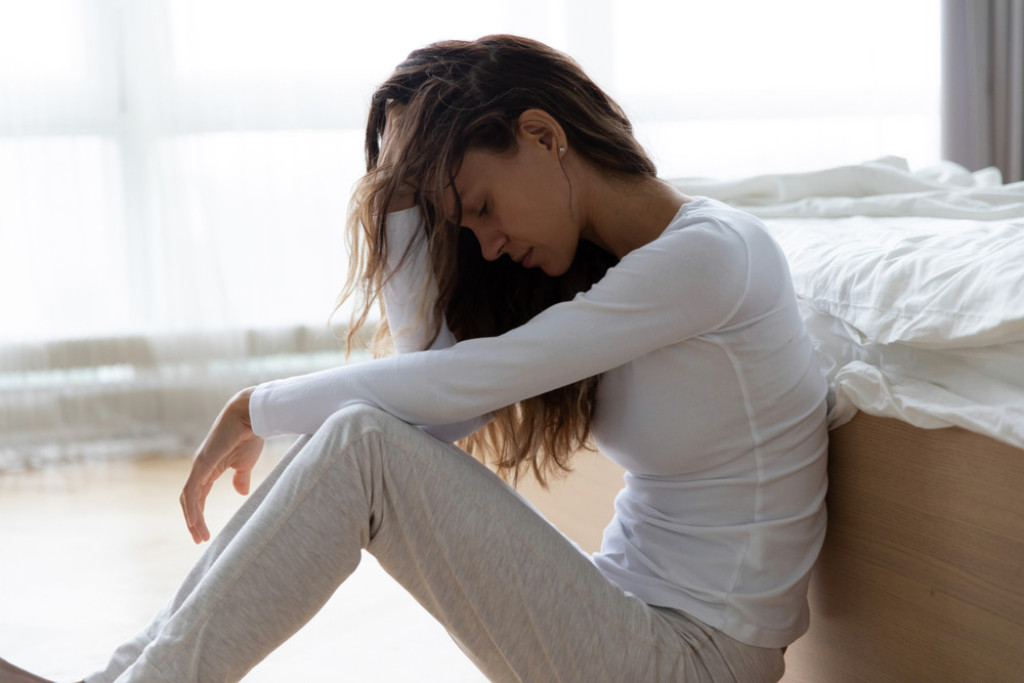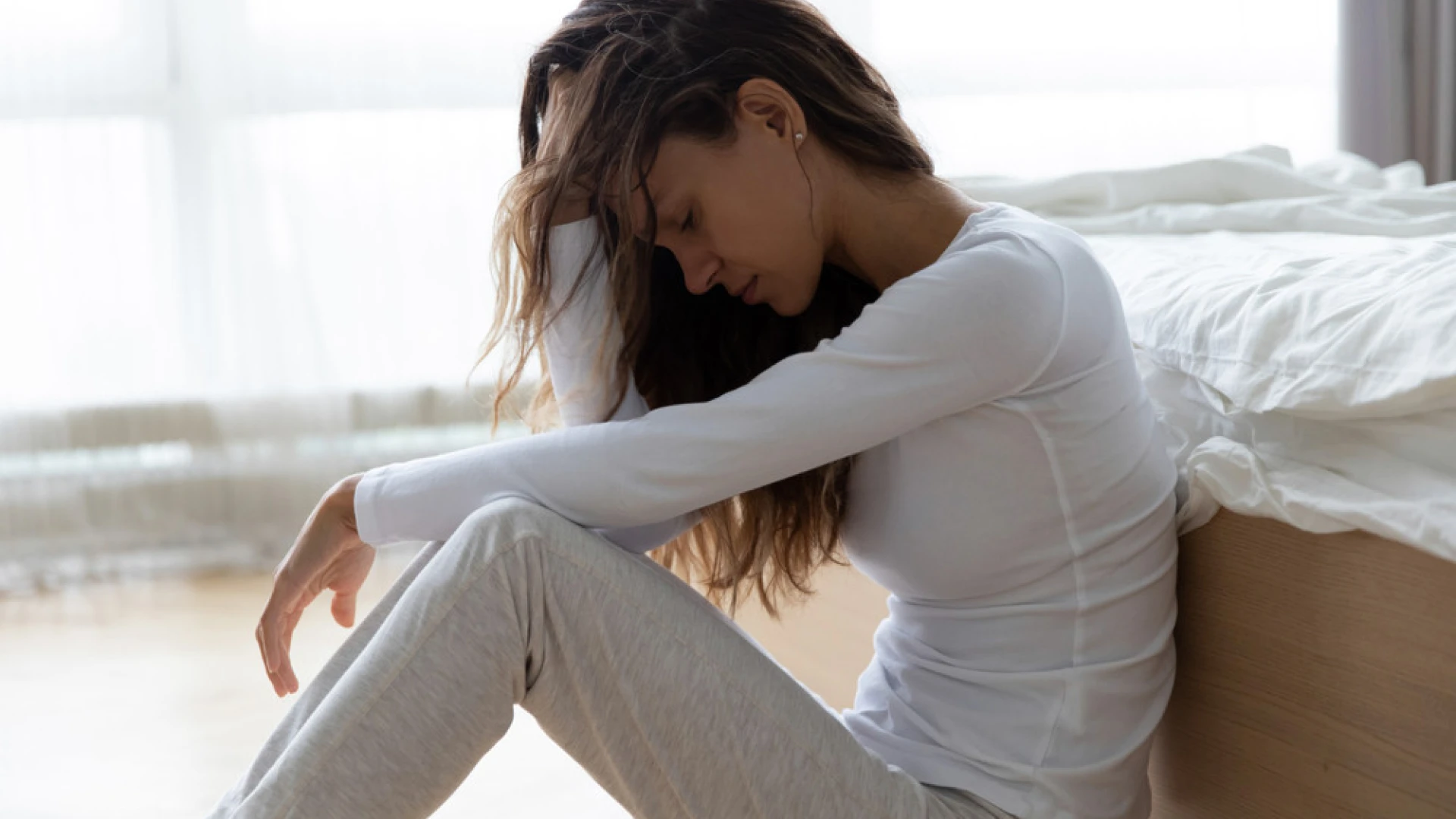Living with endometriosis is a daily battle for many women as it comes with many challenges and complications in their day-to-day lives. Among these challenges, endometriosis flare-ups can be particularly debilitating.
What is an endometriosis flare-up?
A flare-up, also known as an endometriosis attack, occurs when you go through a period of increased severity of endometriosis. Your pain levels can increase, your pre-existing symptom(s) can intensify, and new symptoms may arise. It can last anywhere from hours to weeks, and sometimes occur more than once a month.
What causes endometriosis flare-ups?
- Triggers: Though there is no one specific cause for an endometriosis flare-up, flare-ups can be triggered by sudden movement or intense exercise.
- Physiological changes: Hormonal changes during your period and increased inflammation can trigger an endometriosis flare-up.
- Stress:Our panelists agreed that stress plays a significant role in the development, intensity, and length of an endometriosis attack.
- Dietary factors: Certain nutrients or foods can trigger an endo flare-up. Our panelists identified alcohol, dairy, soy, highly processed foods, fizzy drinks, red meat, and any known allergens as potential flare-up triggers.
What does an endometriosis flare-up feel like?
The severity of a flare-up can affect one or more symptoms, making it challenging to differentiate between an intense symptom and a flare-up.
We spoke to members of our endometriosis panel, who have personally experienced endometriosis flare-ups, to share their first-hand experience managing this condition.
Leah, diagnosed at 16, Kathleen, living with endometriosis for 30 years since age 12, and Candice, dealing with postmenopausal endometriosis, provide first-hand advice and recommendations for managing flare-ups.
Aching, cramping, stabbing or throbbing, to sharp scratching or feeling like my insides are being sharply twisted around. (Leah)
Like a large lioness gnawing at your internal organs while she has her claws on your back and front pulling you apart. It is a pain you would not wish on anyone. It is beyond pain, the nausea, fatigue, draining, sickening, nerve burning and mind destroying relentlessness are soul destroying. (Kathleen)
Excruciating, chronic, acute pain…can vary between sharp, throbbing, stabbing – like full blown labor. (Candice)
Worsened endo belly and fatigue were the most reported symptoms in an endometriosis flare-up. Abdominal, back, leg, rectal, and sciatic pain were also reported, followed by gastrointestinal symptoms like IBS and even recurring UTIs.
Flare-ups can also have a negative impact on mental wellbeing, leading to low moods, decreased motivation, social withdrawal, and a decline in self-esteem.
Very low moods, low motivation and unwillingness to get things done. It can also limit socialisation and therefore can be very lonely. It can also affect self-esteem…[feeling] generally not myself. (Leah)

How to cope with flare-ups?
Lifestyle changes: Prioritise rest and sleep, especially when experiencing nausea and fatigue during a flare-up.
Dietary changes: If you find that your symptoms are getting worse, you may be in a pre-flare up stage. Certain foods might trigger the flare-up, so it’s important to identify anything that typically irritates your symptoms or causes bloating, constipation, or diarrhea.
Low-impact exercises: Some of our panelists find that moving their bodies with low-impact exercises such as small walks, gentle yoga and Pilates stretches, and aqua spin help with pain in the long run. They advise that if your flare-up is very painful, it is better to do these exercises post flare-up. They say that aqua Spin, Pilates, Acupuncture, Heat therapy, TENS, and other distraction techniques (gardening, crochet etc) have had a positive impact on helping with their flare-up pain.
Holistic therapy: Consider alternative treatments that focus on assisting in pain relief, regulating the nervous system, and reducing stress levels such as massage, acupuncture, and hydrotherapy. Leah advocated the benefits of lymphatic drainage massage using a light touch, which she found particularly helpful after her laparoscopic surgery. Although these treatments do not have any clinical trial evidence to support their benefits, many endometriosis patients find them very helpful for stress and pain relief.
Heat: Applying heat to the affected area using hot water bottles, hot baths, or heated blankets can provide immediate relief during a flare-up.
Meditation: This involves reducing stress through any distraction techniques. Kathleen recommended gardening, and Candice found Reiki therapy (a Japanese meditation form for relaxation) and ASMR to be engaging and remove her focus from the pain of a flare-up.
Medication and treatments: Sometimes the pain of a flare-up is so intense and unmanageable that you may need medication or some form of treatment. Prescription pain tablets, TENS machines, and pelvic floor physiotherapy were recommended by our panelists.
Although the stress and pain of a flare-up can be very challenging to cope with, our panelists offer some final pieces of advice to help other sufferers push through.
“I have certain go-to outfits that I feel comfortable in during a flare up, being comfortable helps to feel better about myself overall. I will ensure I eat well, stay hydrated, move as much as I am able to without worsening the flareup. I always have an emergency bag with me just in case with painkillers, heat packs, and sanitary products for worst case scenario. But most importantly I ensure my home is a calm and happy space for me to be in when I am experiencing a flare-up meaning that I am able to take a step back and look after my body when needed. - Leah
It is important to know that it is part of a cycle and that it will change in time. I think it is important to use the anger generated and funnel it in to another positive outlet - cleaning, gardening, raising awareness, and sometimes just doing nothing and allowing my mind to experience it, knowing it will pass. -Kathleen
Having a positive mental attitude... this too shall pass. - Candice
”
